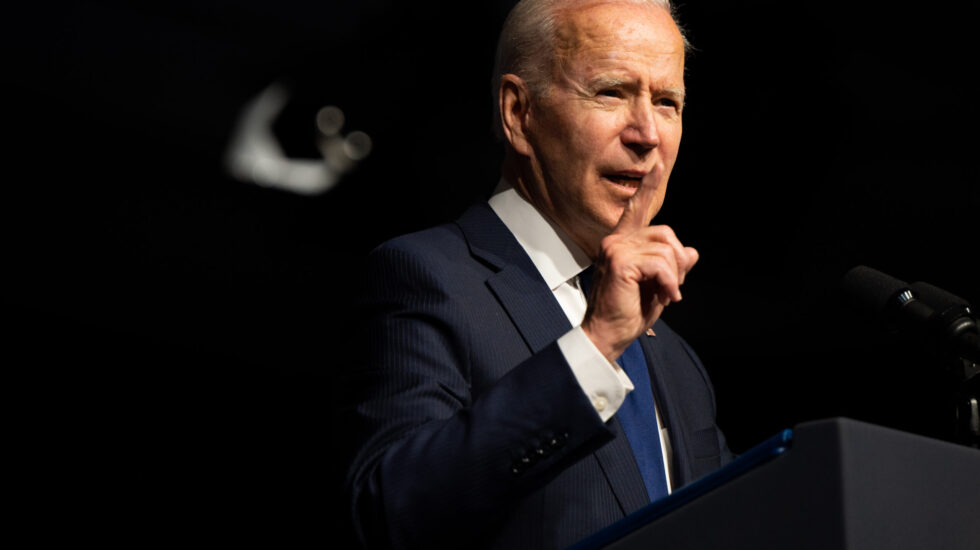President Biden takes off on his first International trip since winning the White House later this week, with a daunting task awaiting him. The President is heading overseas with the intent of untangling the often contentious foreign policy implemented by the Trump Administration, while making the case for why his ideas for international relations will be good for Americans back home.
Biden outlined the purpose of his first trip abroad as Commander-in-Chief — the 8-day trip begins Wednesday — in an op-ed published this weekend in The Washington Post. In the piece, he wrote that he aims to restore global confidence in America and undo the isolationist approach of the previous administration.
“In this moment of global uncertainty, as the world still grapples with a once-in-a-century pandemic, this trip is about realizing America’s renewed commitment to our allies and partners, and demonstrating the capacity of democracies to both meet the challenges and deter the threats of this new age.”
Observers say foreign policy has long been a passion for Biden. In the Senate, he once headed the Foreign Relations committee. As President Barack Obama’s VP, he took on a number of foreign policy issues for the administration. Now, as President, he and his advisors see the domestic crises he’s dealing with as intersecting with global concerns. His ability to balance both and convince voters here in the U.S. that his foreign policy will aid them in the long run is the challenge.
“He rightly says we’re in a competition between democracies and autocracies, and that in order to win that competition, democracies like ours need to demonstrate they can still deliver for the people — above all those who were left behind,” Ivo Daalder, a former U.S. ambassador to NATO who now serves as president of the Chicago Council on Global Affairs, told Politico.
In that same Politico piece, Biden’s foreign strategy is outlined as such:
“Think of it as a more global-minded, multilateralist take on America First. It’s not a completely new concept for Biden. But it’s made all the more critical as he continues to push for trillions of dollars in spending and tries to maintain his grip on the portion of working-class voters who helped him win in 2020. His early tenure has been defined not by wars and foreign entanglements but the coronavirus pandemic and economic downturn that spawned from it, forcing him to put his first love — foreign policy — on the backburner.”
To some, Biden is playing catch up with the international issues because his first five months in office have been consumed by dealing with the pandemic, the economy, immigration and other domestic priorities. His agenda reflects a need to cast a wide net.
He will attend a Group of Seven gathering of world leaders in Cornwall, England to discuss Covid, trade and taxes such as the plan to make the world’s biggest companies a greater share of tax on their revenue. Biden will also meet with NATO and European Union leaders in Brussels about security in the face of challenges from Russia and China.
The last stop of the trip will be in Geneva, where he will meet face-to-face with Russian President Vladimir Putin. However, it is not clear yet if it will be just the two leaders meeting in the same room or if others will be present.
But even though the meeting in whatever shape it takes may be heavier on symbolism than actual substance, Biden underscored the importance of the meeting in his editorial at reminding the world about the U.S.’ commitment to democracy. He wrote:
“In my phone calls with President Putin, I have been clear and direct. The United States does not seek conflict. We want a stable and predictable relationship where we can work with Russia on issues like strategic stability and arms control.”
“At the same time, I have also imposed meaningful consequences for behaviors that violate U.S. sovereignty, including interference in our democratic elections. And President Putin knows that I will not hesitate to respond to future harmful activities. When we meet, I will again underscore the commitment of the United States, Europe and like-minded democracies to stand up for human rights and dignity.”
Biden ended his editorial by asking a question about whether global democracies can stand up and hold fast against the rising autocrats in some parts of the world. Ever the optimist, Biden provided the answer to his own question.
“Can democracies come together to deliver real results for our people in a rapidly changing world? Will the democratic alliances and institutions that shaped so much of the last century prove their capacity against modern-day threats and adversaries?
I believe the answer is yes.”
After his overseas visit, we’ll start to get a clearer picture about whether he’s correct.



